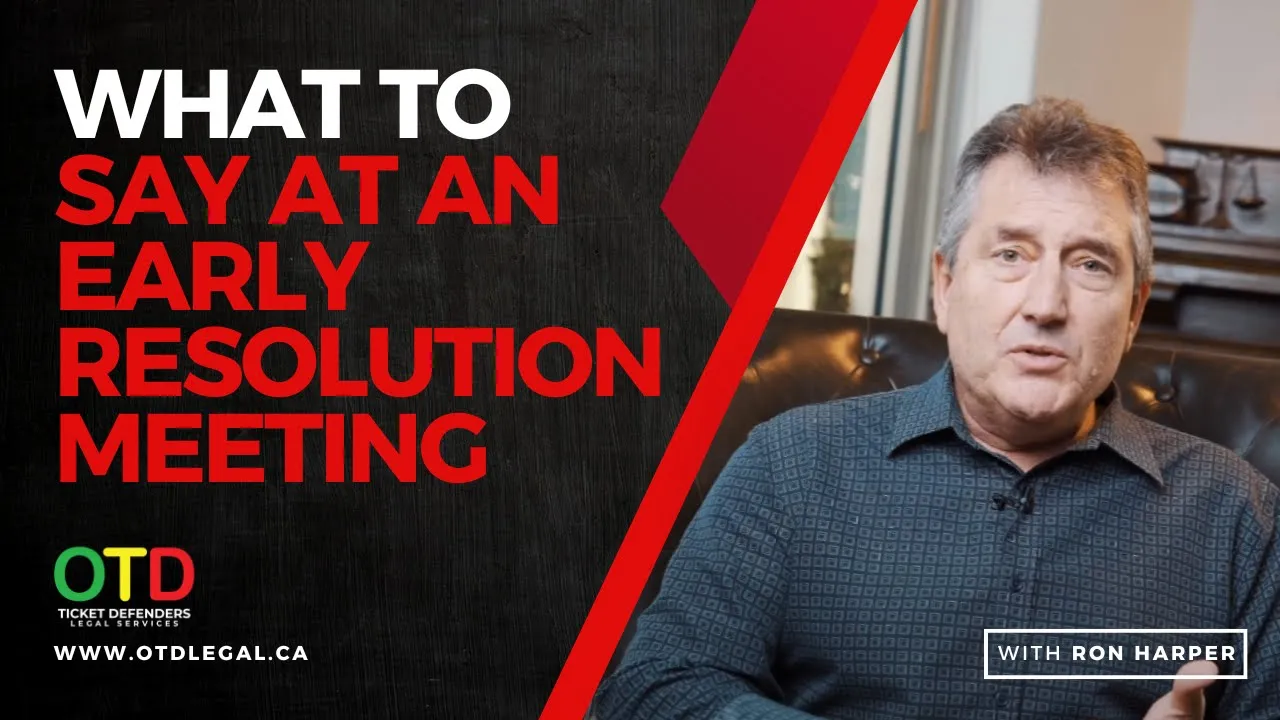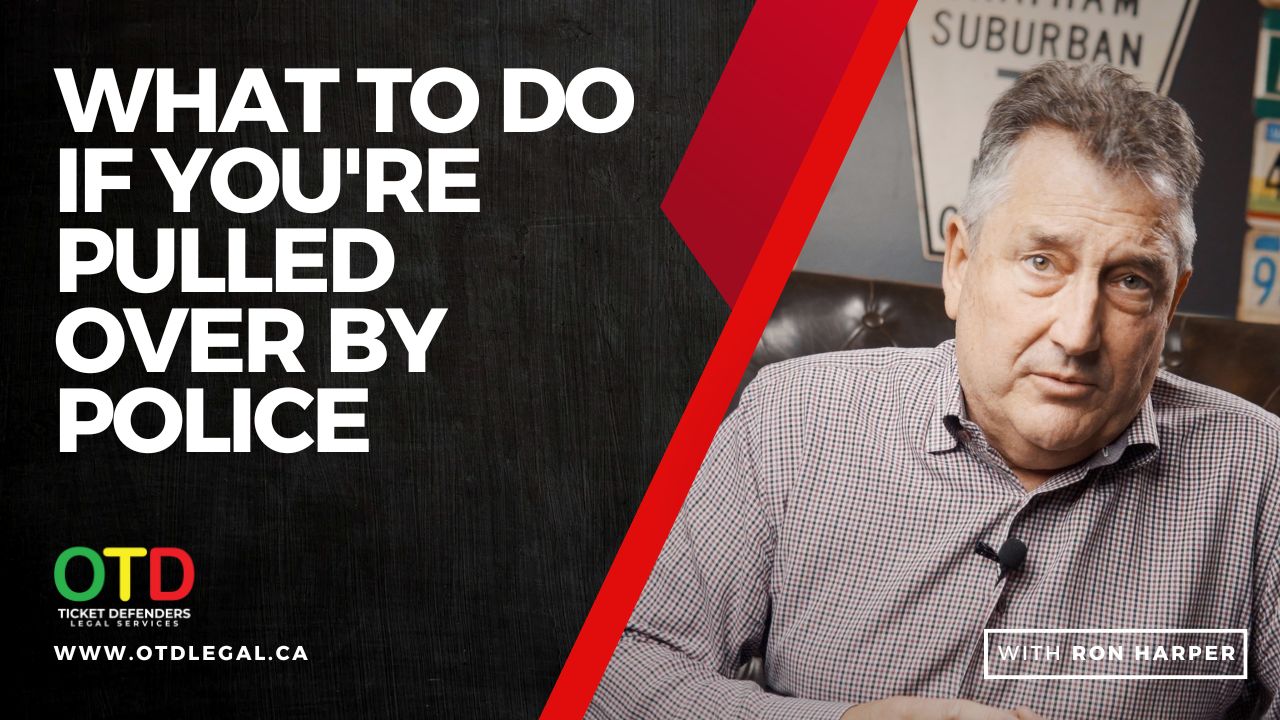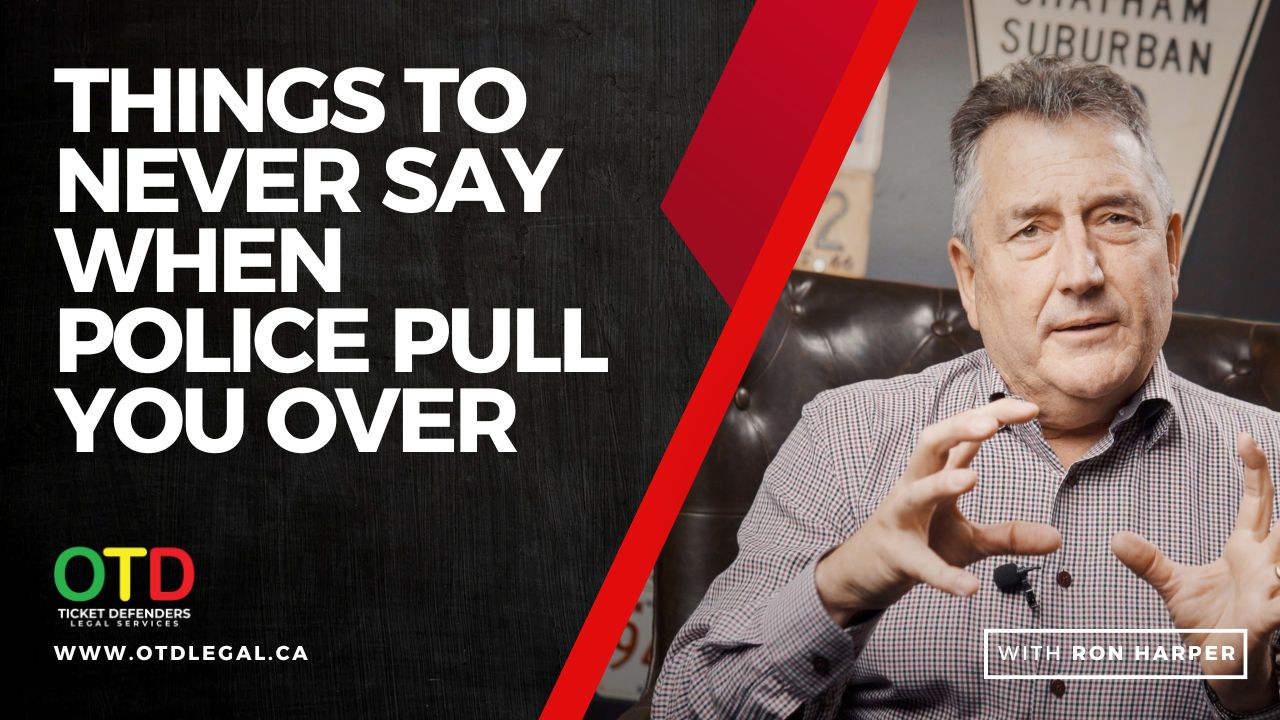Being stopped and charged by the police is stressful enough to begin with. After the police have driven away and you’re sitting there with your ticket(s) in your hand, you’re going to have some big questions. What does this paperwork mean? What penalties am I facing at court? Will this impact my license or my job? Is this going to impact my insurance? Can I fight these at court? If I can fight these at court, how does that even work?
Previously the only legal representative that you could hire in Ontario that was licensed by the Law Society was a lawyer. Hiring a lawyer can be very expensive and may not be affordable. Fortunately, paralegals are now a legal option for you through the Law Society. Paralegals are licensed and regulated just as lawyers are through the Law Society and they are generally much more affordable. But even with this more cost-effective legal option, there are still questions. Just what is a paralegal? Which paralegal is right for me? What does a paralegal do that I couldn’t do myself? Is there anything I should avoid when hiring a paralegal?
Let’s take a look!
What Is A Paralegal?
The Law Society of Ontario (LSO) governs lawyers and paralegals in Ontario. It was originally created in 1797 through an act of the Legislative Assembly to act in the public interest to ensure that legal representatives conformed to high standards of learning, competence and professional conduct. The Law Society began issuing paralegal licenses in April 2008. Prior to the licensing of paralegals, the only legal representative regulated by the LSO that a defendant court hire were comparatively expensive lawyers. This could mean in many instances that it was simply not affordable or at least not cost-effective to hire legal representation in Ontario. Or, if you did hire a non-licensed paralegal, you didn’t know how well trained or experienced they were, let alone have any recourse through the Law Society should you have a complaint about your legal representation.
Now that the Law Society regulates paralegals, just as they regulate lawyers, you can be assured that your licensed paralegal has met the following minimum standards:
- Completion of an approved legal services program in Ontario
- Successful completion of the Law Society’s Paralegal Licensing Process, including Licensing Examinations.
Lawyers can represent individuals in any of the following legal areas:
- Family matters, such as divorce, separation and child custody
- Criminal matters in all levels of court
- Civil litigation matters in all levels of court
- Wills, powers of attorney and estate matters
- Real estate matters, including buying and selling personal or commercial property
- Administrative law matters, including appearances before tribunals.
Where as a lawyer can represent individuals in any legal matter, paralegals are trained and regulated to deal with specific areas of law:
- Small claims court
- Prosecution of provincial offences, including traffic tickets, under the Provincial Offences Act
- Tribunals, such as the Landlord and Tenant Board or the Workplace Safety and Insurance Board
- Minor criminal charges under the Criminal Code heard in the Ontario Court of Justice.
It is not uncommon that lawyers and paralegals will tend to specialize in a specific area of law. There’s a lot to know about any specific area of law and the more you deal with that specific area of law, the better you can understand it and keep up to date with changes to the law and specific case law. That means being of the best possible assistance to your clients.
What Does A Paralegal Do?
This first thing that should happen is a meeting between yourself and the paralegal firm that you are looking to retain. This could be an in-person meeting, but it could just as easily also be done over the phone. Both you and the paralegal firm are going to have some questions. For example, they will need to know:
- Your basic contact information
- What is your case history (have you had previous convictions that may be relevant to the defence of your current charge(s))?
- What have you been charged with?
- What jurisdiction is your matter set to?
- What happened leading up to your being charged by the police?
- What happened when you spoke with the police?
You will like have a lot of questions including:
- What have I been charged with? Is this serious?
- What court penalties am I facing?
- How will this impact my driver’s license?
- How will this impact my insurance?
- What are my options?
- Can I fight my charge(s) at court?
- How long will the court process take?
- What is the court process?
- What are my possible outcomes at court?
- Do I have to attend court?
- How much is this going to cost?
All of these are important questions. If you can’t get straight forward answers to these questions, that is a warning flag that you may not have found a paralegal company that is a good fit with you.
However, there are certainly some questions that can not be legitimately answered in your initial consultation such as “Will my charge(s) get thrown out at court?” or “How is my case going to resolve at court?” Until you have retained a paralegal company and they have filed for and received a disclosure of evidence from the Prosecutor’s Office, they will not understand the major legal factors involved in your case and can not provide you with a legal opinion. Providing you a legal opinion at this early stage could potentially mislead you with incorrect information leading you to make incorrect legal decisions and it could also create liability for the paralegal firm in having done so.
If someone tells you that they can guarantee that your charge(s) will get thrown out at court, you need to carefully assess why they would tell you that. Are they being honest with you? Are they simply trying to take your money? Even in cases where there is a strong defence to be argued at court anything could happen during the court process. At the very start of your case, the following factors may be unknown:
- You may not be aware of all of the evidence that the prosecutor has against you
- Your legal representative may not yet be aware of all the legal factors at play
- Witnesses may or may not attend court
- Witnesses may change their initial statements
- Defence or prosecution witnesses may do better or worse than expected at trial
- New case law may come into effect by the time your case reaches trial
- The presiding Justice of the Peace could make an error in law
No one can predict these issues. You need an honest relationship with your paralegal company. A good paralegal firm will listen to you, ask you questions, provide you with general information, and then set out clear instructions in writing with you on how they are going to approach the defence of your case.
What Happens At Court?
Once you have retained a paralegal firm, that’s when the legal work starts. One of the biggest benefits of hiring a paralegal is that they take care of the court filings and legal work for you. If you have received a ticket, that ticket will need to be filed correctly with the court and then it will be necessary to follow up with the court staff to ensure that the filing has been processed correctly. If you are in the middle of a reopening or an appeal, that paperwork will need to be drafted by your legal representatives and then properly filed with the appropriate parties. If you have been issued a summons, your offence notice will already have a first appearance court date set that your paralegal will attend for you.
Once your paralegal has obtained the prosecutor’s evidence or any necessary court transcripts, they will be meeting with the Prosecutor’s Office on your behalf. This meeting is referred to as an early resolution meeting. The two sides will review the evidence and discuss the legal merits of that evidence to first of all determine whether or not the charge(s) can be withdrawn. If there is a strong legal argument that the charge(s) would be dismissed at trial, the best resolution is to argue to simply have the charge(s) withdrawn without the need for trial.
If the Prosecutor’s evidence is sufficient for them to proceed to trial, the next step would be for the two sides to discuss potential resolutions. If the evidence against you could reasonably lead to a conviction at trial, your paralegal will negotiate within your within your written instructions to get you the best resolution possible.
If no mutually agreeable resolution can be reached, then your case may either need to be argued at trial or it may be necessary to engage in further resolution meetings. Trials can be very stressful for self-represented defendants. They generally don’t know the law or the court process. They have to face off in the court room against an experienced and trained prosecutor. They may open themselves up to being a witness that can be cross examined by the prosecutor. The idea of having to appear before a Justice of the Peace or questioning the police officer that charged them may be very intimidating.
Let your paralegal take care of this for you. This is what they are trained and licensed by the Law Society to do. They are knowledgeable and comfortable in the court room and they won’t be intimidated. Many of the cases that are dealt with at court by paralegals can be completed without the defendant ever having to attend a court date. That is a huge relief to many defendants who are worried about having to appear in the courtroom.
Will I Be Kept Up To Date On What Is Happening On My Case?
Yes. A good paralegal firm will ensure that you are kept up to date on what is happening with your case. You will know when and where your court dates are scheduled and whether or not you need to attend court. If more information is needed from you to help in the defence of your case, your paralegal will speak with you and go over that with you. At the conclusion of your case, you will receive a written client report clearly explaining the outcome of your case: what happened, what penalties remain (if any), and any remaining legal obligations that you may have such as paying a court fine. If you have questions, you can always call or email your paralegal firm to ask. That’s what your administrative and legal team is there to do for you.
What Should I Do?
If you have been charged by the police, contact our office. You have nothing to lose by asking questions. The alternative is to hope that you understand the consequences of what you have been charged with and to hope that you’ll know what to do at court. Informed legal decisions ensure that you are acting in your best interests to get your best possible outcome. You can avoid legal missteps by retaining a licensed paralegal to represent you at court.
Our friendly staff are here to help you. We offer a no-cost, no-obligation initial consultation to go through your case history and details with you. We can be reached via our toll-free number 1-844-647-6869, by email at help@otdlegal.ca, or by text at 226-240-2480. You can also submit an online consultation request any time of day or night and one of our staff will contact you during regular business hours to assist you.







